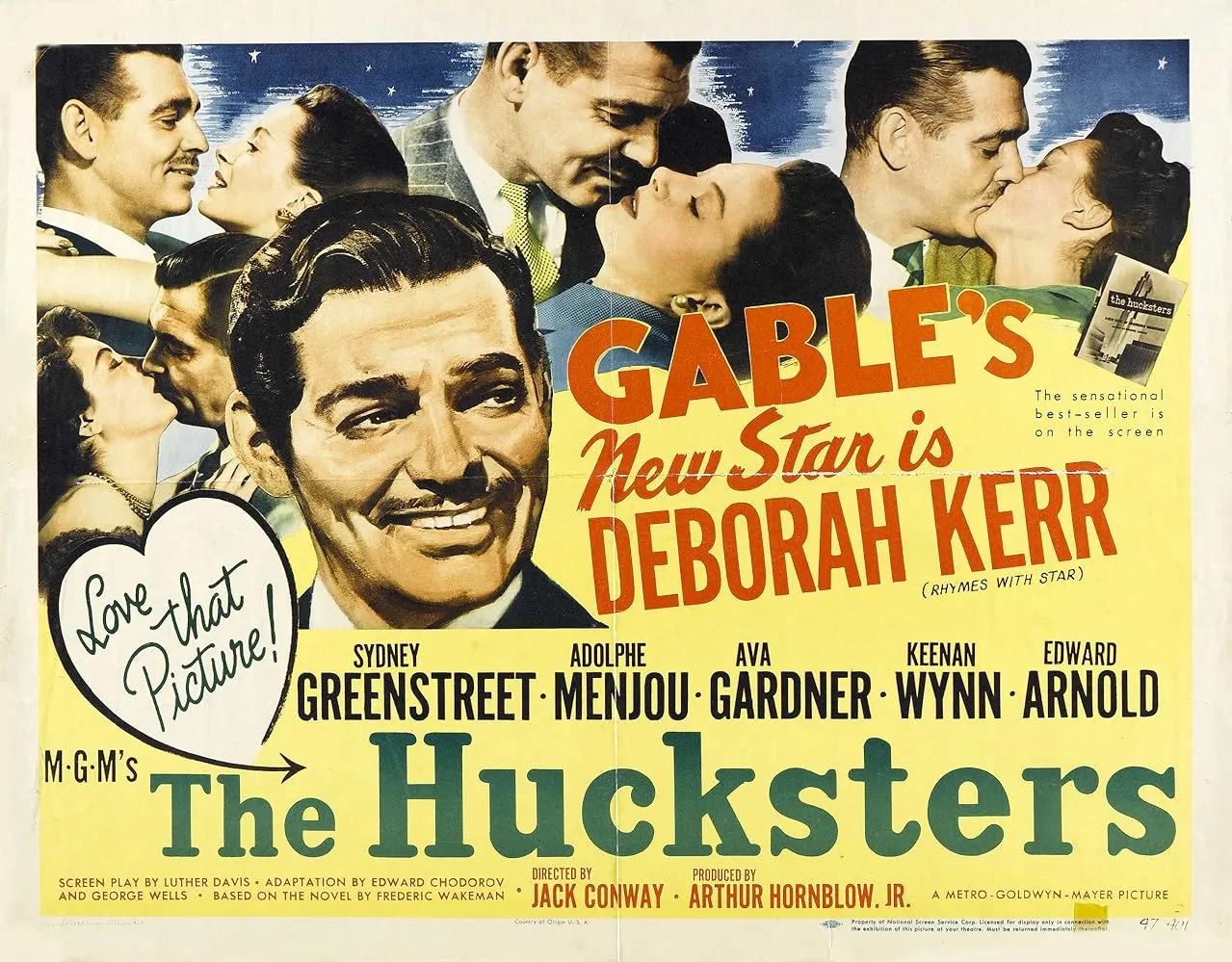Clark Gable is a veteran returning home from World War II eager to resume his pre-war lifestyle as a playboy ad-man, but ultimately finding the life empty and unsatisfying. He takes a high-paying job at an ad agency, in the course of which he meets beautiful war widow Deborah Kerr, which causes him to change his values.

The movie was ok, but not actually good. Plenty of close-ups of Gable’s face, which reminded me that he was actually a homely man, with big fleshy lips and bad teeth. He was often on the phone with Deborah Kerr’s character, and it was unsettling to see close-ups of his lips doing air kisses.
On the other hand, I can also see why he was a huge sex symbol. He had charisma.
Deborah Kerr’s character was a blank cipher, an empty receptacle for Victorian views of chastity and virtue. She had no discernible personality, ambitions or thoughts other than attaching herself to Clark Gable. Gable and Kerr had zero chemistry together.
Clark Gable’s character was also pursued by an ambitious lounge singer played by Ava Gardner, the only really interesting character in the film. In addition to being smokin’ hot (on account of being Ava Gardner), she was also funny, smart and charming, and made it very clear that the main character could have her anywhere and at any time, for a quickie, lifetime commitment, or anything in between.
Clark Gable’s character, of course, rejects Ava Gardner in favor of Deborah Kerr. Because Ava Gardner’s character was a Bad Girl I guess.
The movie features a hell of a cast doing great work despite a lackluster script and story: Sydney Greenstreet as an evil soap company magnate, Adolphe Menjou as Clark Gable’s unscrupulous boss, Keenan Wynn as a talentless, shameless comedian who’s desperate for work, and more. Truly, the entire cast was great—not a dud in the lot—they just didn’t have much to work with.
And the movie has great midcentury design, direction, and dialogue. It’s visually very nice, except for too many close-ups of Clark Gable.
Overall, I enjoyed it, but I can’t say I’d recommend it.
According to Wikipedia, the movie was adapted from a best-selling novel, which was considered raunchy and racy in its day. Even Gable said it was “filthy” and “isn’t entertainment.” The story was toned down for the movie—as far as I can see, they removed nearly all the spice from it and made it bland and uninteresting.
One storyline involves a fictional talent agent named “David Lash,” played by Edward Arnold. In the novel, he was based on a real agent of the time, Jules Stein, founder of MCA, but the filmmakers were afraid of Stein, so they had characters repeat several times that Lash is an honest man.
In a pivotal scene in the movie, Clark Gable’s character threatens to spread gossip about Lash that will cause people to think Lash is dishonest. Lash is portrayed as heartbroken, not for himself, but because he got in trouble when he was young, went straight and succeeded, and he fears besmirching the reputations of all troubled kids. Gable’s character is disgusted with himself afterward.
It’s an odd scene that doesn’t really work.
But in the book, Lash is presented as Jewish, and Clark Gable’s character threatens to fan the flames of anti-Semitism, which would have been a more powerful scene if the filmmakers had gone through with it.
Also this:
As the start of production neared, Ava Gardner grew nervous about appearing with Gable, an actor she had idolized since childhood. [Producer Arthur Hornblow Jr.] asked Gable to call her, and he told her: “I’m supposed to talk you into doing this thing. But I’m not going to. I hated it when they did that to me. But I hope you change your mind, kid, I think it would be fun to work together.” The two remained friends for the rest of Gable’s life.
Gable also sought to make a nervous Kerr feel relaxed when shooting commenced. He sent her six dozen roses on the first day, and “the two hit it off beautifully from the beginning, on and off the set.”
I don’t know anything about Gable but he sounds like a true gentleman.